Coriander Seeds are the dried seeds of the coriander plant, a part of the parsley family. They offer a special mix of sweet, citrusy, and somewhat peppery flavors that include profundity and complexity to a assortment of dishes.
Key Characteristics:
Flavor: Warm, marginally hot, with a imply of citrus.
Appearance: Little, circular, and light brown.
Uses: Cooking, heating, and aromatherapy.
Culinary Applications:
Indian Cooking: Basic in curries, chutneys, and zest mixes like garam masala.
Middle Eastern Cooking: Utilized in falafel, hummus, and other conventional dishes.
European Cooking: Included to frankfurters, marinades, and prepared goods.
Aromatic Mixes: Combined with cumin, fennel, and other flavors for interesting flavor profiles.
Digestive Help: Advances absorption and diminishes bloating.
Anti-inflammatory Properties: Makes a difference reduce inflammation.
Antioxidant Wealthy: Contains compounds that ensure cells from damage.
Coriander seeds are a flexible fixing that can raise your culinary manifestations. Whether you’re a prepared chef or a domestic cook, joining coriander seeds into your formulas will include a scrumptious and fragrant touch.
India’s Finest Coriander Seeds: A Direct to Quality
India, eminent for its wealthy agrarian legacy, is a major maker of coriander seeds around the world. The nation gloats a different extend of climates and soil conditions that are perfect for developing this fragrant zest. Here’s a see at a few of the best quality coriander seeds found in India:
Geographical Locales for High-Quality Coriander
Rajasthan: Known for its dry climate and sandy soils, Rajasthan produces a few of the finest coriander seeds in India. The region’s interesting conditions contribute to the seeds’ solid smell and flavor.
Gujarat: Gujarat’s coastal climate and prolific soil make it another noteworthy coriander-producing locale. The seeds from Gujarat frequently have a somewhat sweet and citrusy taste.
Madhya Pradesh: Madhya Pradesh’s differing geography and shifting elevations back the development of coriander in diverse districts, coming about in a wide extend of quality variations.
Factors Contributing to High-Quality Coriander Seeds
Climate: The perfect climate for coriander development is warm and dry with bounty of daylight. India’s differing climate zones give reasonable conditions for developing high-quality seeds.
Soil: Well-draining, rich soil is fundamental for creating coriander seeds with a solid smell and flavor. India’s rural lands frequently meet these requirements.
Cultivation Hones: Conventional cultivating strategies and natural hones can contribute to the quality of coriander seeds. Maintaining a strategic distance from intemperate utilize of pesticides and fertilizers can offer assistance protect the characteristic flavor and aroma.
Processing and Capacity: Legitimate preparing and capacity methods are significant for keeping up the quality of coriander seeds. Drying, cleaning, and bundling ought to be done carefully to avoid defilement and degradation.
Identifying High-Quality Coriander Seeds
Aroma: High-quality coriander seeds ought to have a solid, wonderful smell. The fragrance ought to be warm, marginally hot, and maybe with a imply of citrus.
Appearance: The seeds ought to be little, circular, and light brown. They ought to be free from pollutions and remote matter.
Flavor: Taste the seeds to survey their flavor profile. They ought to have a adjusted combination of sweetness, flavor, and citrus.
Source: Buy coriander seeds from legitimate providers who source their items from solid Indian ranches. See for brands that prioritize quality and authenticity.
By understanding the components that contribute to high-quality coriander seeds and carefully selecting your source, you can appreciate the best flavors and smells that India has to offer.
India’s Flavor of Coriander: A Quality Overview
India is a worldwide pioneer in the generation of coriander seeds, eminent for their quality and one of a kind flavor profile. The country’s differing climate and soil conditions, combined with centuries of development skill, contribute to the remarkable quality of Indian coriander.
Key Characteristics of Indian Coriander Seeds
Aroma: Indian coriander seeds ordinarily show a warm, somewhat zesty smell with a imply of citrus. This unmistakable scent is a result of the one of a kind terpenes and compounds display in the seeds.
Flavor: The taste of Indian coriander is a agreeable mix of sweetness, flavor, and citrus. It includes profundity and complexity to a wide extend of dishes.
Color: The seeds are ordinarily light brown in color, in spite of the fact that varieties may exist depending on the particular locale and developing conditions.
Size: Indian coriander seeds are for the most part little and circular, with a marginally wrinkled or finished surface.
Factors Contributing to High-Quality Coriander Seeds
Geographical Area: India’s differing climate and soil conditions give perfect situations for coriander development. Districts such as Rajasthan, Gujarat, and Madhya Pradesh are especially known for creating high-quality seeds.
Cultivation Hones: Conventional cultivating strategies and natural hones are frequently utilized in India, which can offer assistance protect the common quality and flavor of coriander seeds.
Processing and Capacity: Appropriate handling and capacity strategies are vital for keeping up the quality of coriander seeds. Drying, cleaning, and bundling ought to be done carefully to avoid defilement and degradation.
Indian Coriander in Worldwide Cuisine
Indian coriander seeds are broadly utilized in different cuisines around the world. They are basic fixings in numerous flavor mixes, counting garam masala, curry powder, and chili powder. Coriander seeds are too utilized in marinades, pickles, and heated goods.
In conclusion, India’s coriander seeds are prized for their remarkable quality, interesting flavor profile, and flexibility in culinary applications. The country’s wealthy rural legacy and ability in zest development guarantee a steady supply of high-quality coriander seeds to meet worldwide demand.
Coriander Seeds: A Flexible Culinary Essential
Coriander seeds, the dried seeds of the coriander plant (Coriandrum sativum), have been cherished for their unmistakable flavor and smell for centuries. They offer a one of a kind mix of sweet, citrusy, and somewhat peppery notes that include profundity and complexity to a assortment of dishes. This flexible flavor is a staple in numerous cuisines around the world, from Indian curries to European sausages.
Culinary Applications
Coriander seeds are utilized in both entirety and ground shapes, with each advertising a marginally distinctive flavor profile. Entire seeds hold their flavor longer and can be included to dishes early in the cooking prepare to permit their flavors to implant. Ground coriander, on the other hand, is more powerful and can be included towards the conclusion of cooking to protect its freshness.
Here are a few well known culinary applications for coriander seeds:
Indian Cuisine:
Curries: Coriander seeds are a key fixing in numerous Indian curries, giving a base of flavor and aroma.
Chutneys: They are frequently utilized in chutneys, such as mint-coriander chutney, to include a new and dynamic taste.
Garam Masala: Coriander seeds are a center component of garam masala, a prevalent zest mix utilized in Indian cooking.
Middle Eastern Cuisine:
Hummus: Coriander seeds are frequently included to hummus for a unpretentious flavor enhancement.
Falafel: They are utilized in the player for falafel to confer a one of a kind taste and aroma.
European Cuisine:
Sausages: Coriander seeds are in some cases included to frankfurters, especially those with a Mediterranean or Center Eastern influence.
Marinades: They can be utilized in marinades for meats and poultry to include a savory flavor.
Baked merchandise: Ground coriander seeds can be included to treats, cakes, and bread for a unobtrusive warmth and complexity.
Other Cuisines:
Chinese food: Coriander seeds are utilized in a few Chinese dishes, especially those with a Sichuan or Hunan influence.
Latin American cooking: They are some of the time included to mole sauces and other conventional dishes.
Supplier of Best Quality of Coriander from India
Coriander from India is known for its excellent quality and distinctive flavor. India is one of the largest producers and exporters of coriander, which is widely used in culinary and medicinal applications around the world. Here are some key points regarding the quality of coriander from India:
1. Varieties of Coriander
– **Whole Seeds**: Indian coriander seeds are recognized for their plumpness, round shape, and bright color. They have a warm, nutty flavor and a citrusy aroma.
– **Coriander Powder**: Ground coriander from India retains the freshness and aromatic qualities of the seeds, offering a slightly sweet and lemony taste.
– **Coriander Leaves (Cilantro)**: Fresh coriander leaves from India, often referred to as “cilantro” in many regions, are widely used in cooking for their vibrant flavor and color.
2. Flavor Profile
– Indian coriander is highly aromatic with a complex blend of citrus, earthy, and spicy notes. The essential oils in the seeds contribute to its strong and appealing fragrance, making it a key ingredient in various spice blends like garam masala, curry powder, and pickling spices.
3. Geographical Diversity
– **Rajasthan**: Coriander from Rajasthan is particularly famous for its superior quality. The climate and soil in this region produce coriander with a higher oil content, enhancing its flavor and aroma.
– **Madhya Pradesh and Gujarat**: Other prominent regions known for coriander cultivation, these areas also produce high-quality coriander seeds with consistent flavor and appearance.
4. Processing and Export Quality
– India ensures high standards of cleanliness, drying, and processing, which maintains the quality of coriander during export. The coriander is often tested for purity, essential oil content, and pesticide residue, ensuring it meets international quality standards.
– Indian coriander is frequently exported to countries in Europe, the Middle East, and North America, where it is valued for its superior taste and aromatic properties.
5. Medicinal Properties
– Indian coriander is prized not just for its culinary uses but also for its medicinal properties. It is rich in antioxidants and is used traditionally to treat digestive issues, infections, and inflammation. High-quality Indian coriander ensures the presence of potent essential oils and bioactive compounds like **linalool**, which have health benefits.
6. Organic and Sustainable Production
– Organic coriander farming is growing in India, with many farmers adopting sustainable agricultural practices. Organic coriander is free from synthetic pesticides and fertilizers, further enhancing its appeal in global markets focused on health and sustainability.
7. Storage and Shelf Life
– Indian coriander, when properly dried and stored, has a long shelf life. The seeds can retain their flavor for up to a year, while coriander powder, if stored in an airtight container, stays fresh for several months.
Benefits of Coriander
Coriander, also known as *Coriandrum sativum*, offers numerous health benefits due to its rich content of vitamins, minerals, and antioxidants. It is used in both its seed form and as fresh leaves (often called cilantro). Here are some of the key benefits of coriander:
1. Rich in Nutrients
– Coriander is an excellent source of vitamins like **Vitamin A**, **Vitamin C**, and **Vitamin K**, as well as minerals like **potassium**, **iron**, and **magnesium**. These nutrients help boost overall health and support various bodily functions.
2. Digestive Health
– Aids Digestion: Coriander seeds and leaves are known to promote digestion by stimulating the production of digestive enzymes. They help reduce bloating, gas, and indigestion.
– Prevents Diarrhea: The antibacterial properties of coriander can help fight off harmful bacteria and prevent diarrhea caused by foodborne pathogens.
3. Anti-inflammatory Properties
– Coriander has **anti-inflammatory** compounds that help reduce inflammation in the body. It may be helpful for people suffering from conditions like arthritis, as it helps reduce joint pain and swelling.
4. Blood Sugar Regulation
– Some studies suggest that coriander may help lower blood sugar levels, making it potentially beneficial for people with **type 2 diabetes**. It is believed to increase insulin secretion and lower blood glucose levels.
5. Heart Health
– Lowers Cholesterol: Coriander may help reduce **LDL (bad cholesterol)** and increase **HDL (good cholesterol)** levels, promoting better cardiovascular health.
– Regulates Blood Pressure: Coriander is rich in potassium and has diuretic properties, which can help regulate blood pressure by encouraging the excretion of excess sodium and water from the body.
6. Antioxidant Power
– Coriander is packed with **antioxidants**, which help protect cells from damage caused by free radicals. These antioxidants reduce the risk of chronic diseases like heart disease and certain cancers.
7. Promotes Skin Health
– **Anti-aging Benefits**: The antioxidants in coriander help reduce fine lines, wrinkles, and signs of aging by neutralizing free radicals that cause skin damage.
– **Treats Skin Conditions**: Coriander has antibacterial and antifungal properties that can help treat skin conditions such as acne, eczema, and fungal infections.
8. Improves Immune System
– The high levels of **vitamin C** in coriander help boost the immune system, making the body more resistant to infections and illnesses. The antibacterial and antimicrobial properties further enhance the body’s defense mechanisms.
9. Supports Eye Health
– Coriander contains **beta-carotene** and **vitamin A**, which are essential for maintaining good eye health. Regular consumption of coriander can help protect against **macular degeneration**, cataracts, and other vision-related issues.
10. Natural Detoxifier
– Coriander is known to help the body eliminate toxins and heavy metals like mercury and lead. It supports liver function and aids in the detoxification process.
11. Fights Infections
– The antimicrobial and antifungal properties of coriander make it useful in fighting bacterial infections, fungal infections, and even foodborne illnesses caused by harmful microbes.
12. Aids Weight Loss
– Coriander helps boost metabolism and acts as a diuretic, which may assist in weight loss by helping the body get rid of excess water and reducing bloating.
13. Menstrual Health
– Coriander seeds may help regulate menstrual cycles and alleviate menstrual cramps due to their antispasmodic properties.
1. Superior Quality
– **Flavor and Aroma**: Indian coriander is renowned for its strong, distinctive flavor and citrusy aroma, which makes it a preferred choice for culinary uses worldwide. The seeds are packed with essential oils, giving them a rich and vibrant taste.
– **Variety**: India produces different varieties of coriander, such as **whole seeds, ground coriander powder**, and fresh leaves (cilantro), providing buyers with a wide range of options depending on their needs.
2. Competitive Pricing
– Coriander from India is often available at competitive prices due to the country’s large-scale production. This makes it a cost-effective option without compromising on quality, especially for bulk purchases by importers, retailers, and food processors.
3. High Standards of Processing
– India follows stringent processing and packaging standards to ensure the coriander remains fresh and uncontaminated. This includes drying the seeds properly and ensuring they are free from pests and impurities, meeting both domestic and international quality regulations.
– **Organic Options**: Many suppliers offer organically grown coriander that is free from synthetic pesticides and fertilizers, catering to the growing demand for organic and sustainable products in global markets.
4. Rich in Essential Oils
– Indian coriander is known for its higher essential oil content, particularly **linalool**, which enhances its flavor and health benefits. This makes it ideal for use in not only cooking but also medicinal applications, cosmetics, and the essential oil industry.
5. Sustainable and Ethical Farming Practices
– A growing number of Indian farmers are adopting sustainable and eco-friendly farming practices, including organic farming and crop rotation, which help maintain the quality of the soil and protect the environment. This ensures a steady supply of high-quality coriander while supporting ethical sourcing.
6. Trusted Global Exporter
– India is a trusted exporter of coriander to many countries around the world, including those in Europe, the Middle East, North America, and Asia. The country has a long history of spice trade, and Indian coriander is highly valued by importers for its consistent quality and reliability.
– Indian suppliers have experience complying with international export standards and certifications, ensuring smooth and reliable shipments.
7. Medicinal Benefits
– Purchasing coriander from India allows access to coriander that is rich in medicinal properties. Indian coriander is traditionally known for its health benefits, including aiding digestion, reducing inflammation, and managing cholesterol levels. The high-quality Indian coriander retains these medicinal qualities, which can be beneficial for both culinary and therapeutic uses.
8. Wide Availability
– Due to India’s large production capacity, coriander is available in abundance year-round, ensuring continuous availability in the global market. Buyers can rely on a consistent supply, even during peak demand periods, without worrying about shortages.
9. Traceability and Certifications
– Many Indian coriander exporters provide traceability, ensuring that buyers know the origin of the product, farming practices used, and quality control measures applied. Certifications like **ISO**, **HACCP**, and **FSSAI** add an extra layer of assurance regarding the safety and quality of the coriander being purchased.
10. Cultural and Traditional Value
-Indian coriander is rooted in centuries-old agricultural traditions, enhancing its appeal. For buyers looking for authentic, traditionally grown herbs and spices, coriander from India represents a rich cultural heritage in spice cultivation.
Purchasing coriander from India offers significant benefits, including superior quality, competitive pricing, sustainable production methods, and a strong supply chain. Whether for culinary use, medicinal purposes, or the essential oil market, Indian coriander is a valuable and reliable choice for consumers and businesses worldwide.
Coriander is not just a flavorful herb or spice but also a powerful medicinal plant with numerous health benefits. Regularly incorporating coriander into your diet can improve digestion, support heart health, boost immunity, and enhance skin and overall well-being.
Coriander from India is of premium quality, appreciated for its unique flavor, aroma, and versatility. Whether used in whole seed form, ground powder, or as fresh leaves, Indian coriander is an essential spice in kitchens around the world, backed by India’s longstanding tradition of spice cultivation.

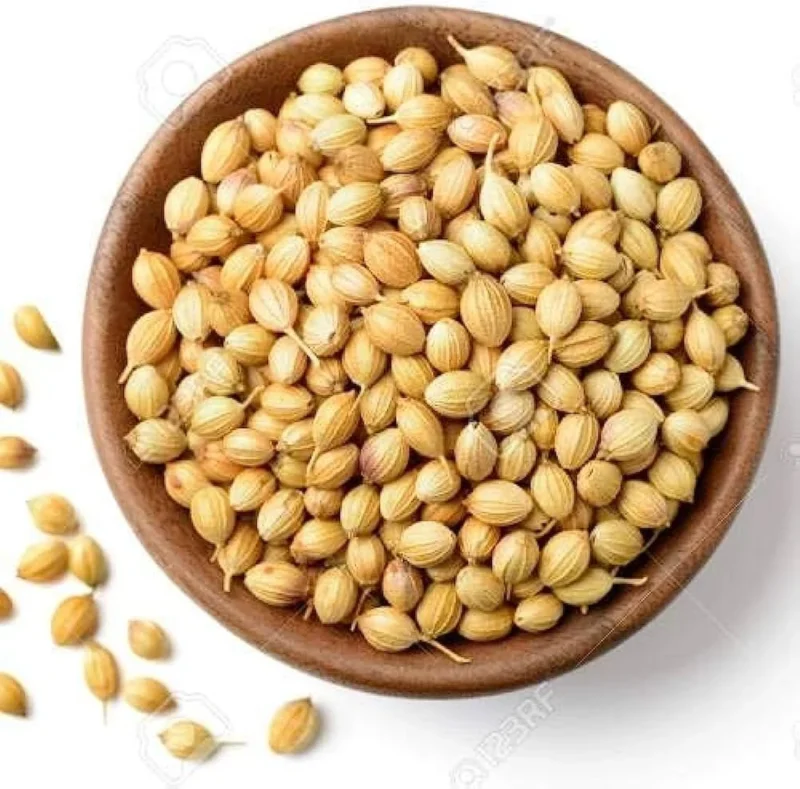



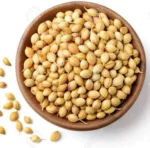
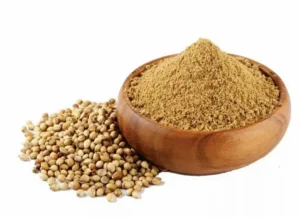




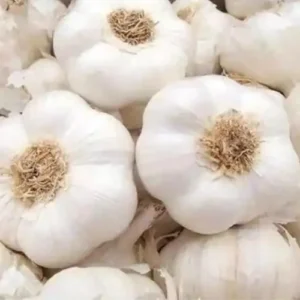

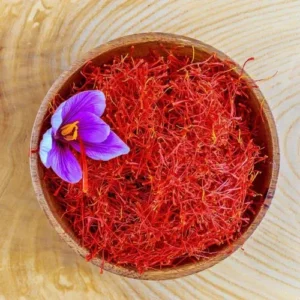
Gorgia Jack –
Best Product really worth of Ordering
Mack –
Worth of buying product
Mack –
Worth of buying product